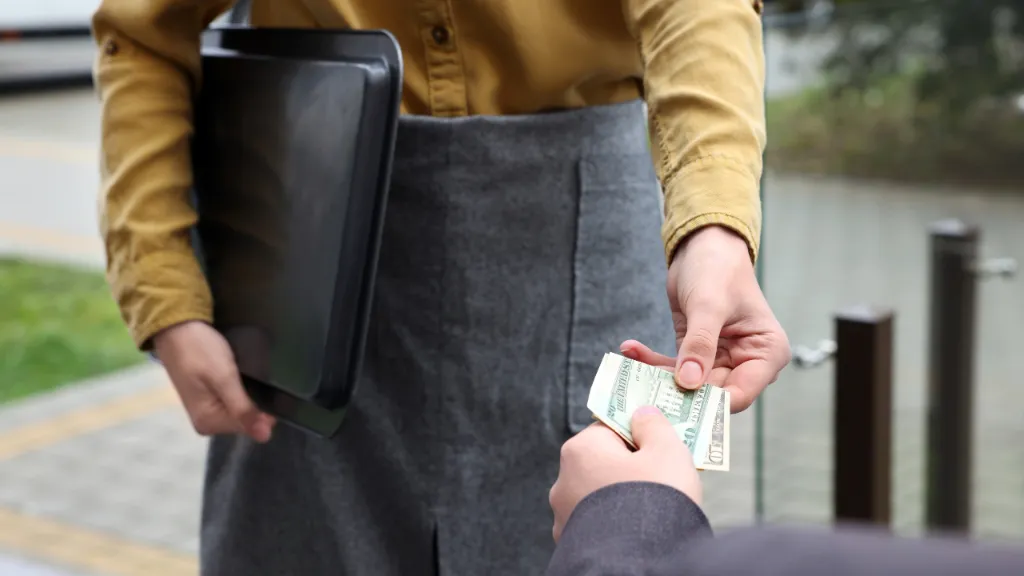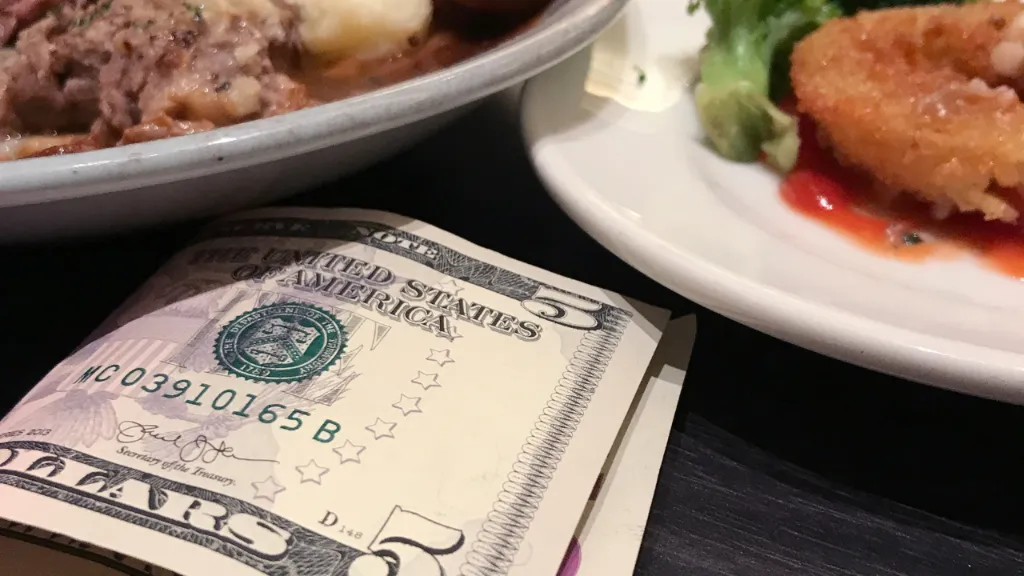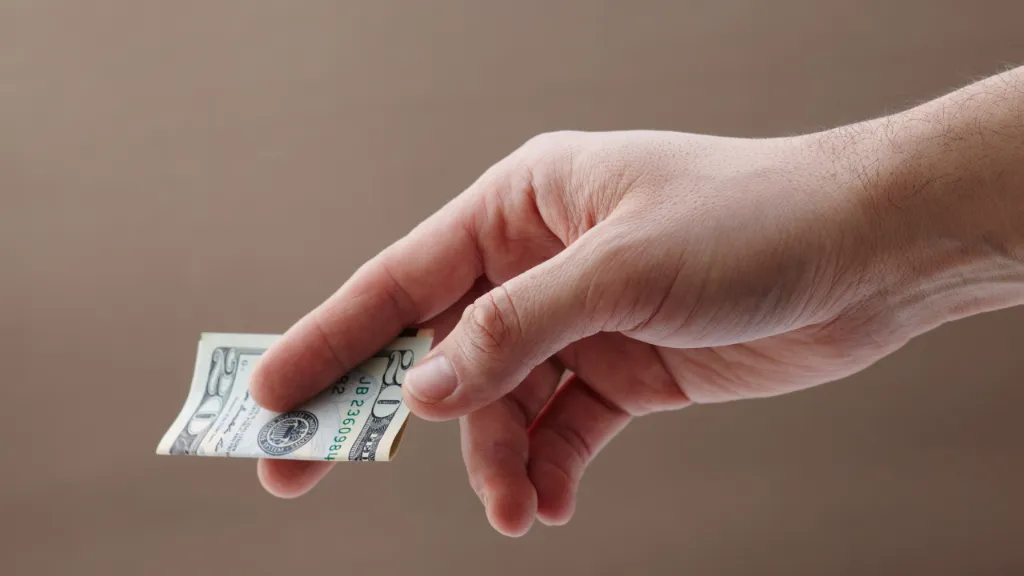Nepal vision | 28/08/2025
Tipping in Nepal is one of those small details that travelers often struggle with. It hasn’t always been part of the culture, but with tourism growing every year, it’s become a quiet expectation in many places. From the mountain trails to the bustling streets of Kathmandu, leaving a tip is now a simple way to express gratitude.
And it matters more than you think. A tip is not just spare change; it’s a gesture of respect, a way to support the guides and porters who carry you through the Himalayas, the drivers who get you safely through chaotic roads, and the service staff who make your journey a little smoother. It also saves you from that awkward pause at the end of a meal or trek when you’re not sure what to do.
This guide is for anyone visiting Nepal, whether you’re here to trek in the high mountains, explore the cultural heart of the cities, or even visit for business. By the time you’re done reading, you’ll know precisely when to tip, how much is appropriate, and how to handle it with confidence.
Understanding the Culture of Tipping in Nepal
In recent times, there has been a rise in tipping in Nepal, particularly in the tourism and hospitality sectors, although it is not mandatory. It is a way to show gratitude and respect for service rather than a strict obligation. While locals value modesty, tourism has introduced an expectation of tips in many service settings, from restaurants to trekking.
In restaurants, leaving 5-10% of the bill as a tip is common if a service charge is not included. Trekking guides typically receive 10-15% of the tour cost, or approximately $15-$20 (1500-2000 NPR) per day, while porters usually earn $10-$15 (1000-1500 NPR) daily. Drivers and taxi services don’t require tips. But rounding up or offering a small extra amount for excellent service is appreciated. In teahouses or homestays, leaving 100-200 NPR per night is a polite gesture.
Tipping should be discreet and handed over with the right hand, as using the left hand is considered impolite. In group treks, pooling tips ensures a fair distribution among guides and porters, whereas solo travelers or small groups typically tip individually. Overly large or public tips can sometimes cause discomfort, particularly in rural areas.
General Tipping Etiquette in Nepal – The Basics
- Use local currency: Always tip in Nepalese Rupees (NPR) rather than foreign coins or damaged notes. Using the local currency is convenient and respectful for service staff.
- Be discreet and respectful: Offer tips quietly without showing off. Handing money with your right hand or both hands is considered polite, as using the left hand is considered rude.
- Small gestures count: Beyond cash, gestures like sharing food, buying tea for guides or porters, or saying “Dhanyabad” show personal appreciation.
- Know when not to tip: Avoid tipping in government offices, temples, and other official services where it may be inappropriate.
- Enhance goodwill: Following these practices ensures tipping is thoughtful, culturally respectful, and positively supports local service providers.

Tipping in Daily Life & Tourism Services
As a traveler in Nepal, there are not many places where you encounter the tipping culture. While it is not mandatory, thoughtful tipping helps build goodwill and supports the livelihoods of local staff. Here’s how tipping works across different services you might encounter.
Hotels & Guesthouses
- Porters and bellhops: Tip around NPR 100–200 for helping with luggage.
- Room cleaners and housekeeping staff: A small tip of NPR 100–200 per night is appreciated.
- Room service: Tip a modest 5–10% of the bill if no service charge is included.
- Budget vs. luxury hotels: Tips are generally higher in mid-range or luxury accommodations, reflecting the level of service.
Restaurants & Cafes
- Service charge included: Many mid-range or upscale restaurants add a 10% service charge; additional tipping is optional.
- Street food & small cafes: Tipping is not expected, but rounding up the bill or leaving a small tip is courteous.
- Upscale dining: If the service is excellent, leaving 5–10% of the bill as a tip shows genuine appreciation.
Taxis, Private Drivers & Ride-Sharing
- Short rides: Round up the fare or add a small amount for good service.
- Long-distance or full-day drivers: Tip NPR 500–1000 per day, depending on service quality.
- Private jeep hires: Consider a fair daily tip, primarily if the driver assists with luggage or guides you through challenging routes.
Trekking & Adventure Staff
- Guides and assistant guides: Typically, 10–15% of the total trek cost or USD 10–15 per day.
- Porters: The standard rate is USD 5–10 (NPR 500–1000) per day is standard.
- Group vs. solo trekkers: Groups often pool tips for fair distribution; solo travelers can tip directly.
- Expedition teams: Include cooks, Sherpas, and base camp staff; consider tipping collectively for more extended expeditions.

Tea Houses & Rural Stays
- Family-run lodges: A tip of NPR 100–200 per night is a kind gesture. Buying food or small items for hosts is also appreciated.
- Homestays: Tipping is welcome, mainly if the family provides personal attention.
- Donation boxes in monasteries: A small donation is preferred over direct tips.
Other Services
- Spa, massage, barbers, tailors: Tip a small amount based on service quality.
- Musicians and street performers: A few NPR shows appreciation for local art.
- City tour guides: USD 5–10 per day or NPR equivalent is a fair gesture for guided tours.
How Much to Tip in Nepal (Practical Ranges)?
Tipping in Nepal depends on the service and setting. In hotels, porters, cleaners, and room service staff typically receive 100–200 NPR per day for budget stays, while luxury hotels may expect higher rates.
Restaurants often add a 5–10% service charge to the bill if one is omitted. Drivers and taxi services can be rewarded with a small bonus for completing long trips or providing exceptional service. Trekking staff, like guides and porters, typically get 1,500–2,000 NPR and 1,000–1,500 NPR per day, respectively.
While expedition teams are typically paid based on effort and duration, it is recommended to always use Nepali Rupees (NPR) rather than foreign coins and withdraw sufficient cash in small denominations before heading to rural or remote areas to ensure smooth and respectful tipping.
Mistakes to Avoid When Tipping in Nepal
- Over-tipping can create unrealistic expectations for future visitors.
- Showing off tips publicly, as discretion is valued in Nepali culture.
- Giving impractical gifts, such as foreign coins or worn-out clothes, may be inconvenient.
- Assuming tipping replaces fair wages, it should be a gesture of gratitude, not a substitute for proper payment.
Alternatives to Tipping – Showing Gratitude in Nepali Style
- Buy small, thoughtful gifts or treat your guide or porter to a cup of tea.
- Express your appreciation verbally by saying “Dhanyabad,” which means “thank you” in Nepali.
- Leave positive online reviews for hotels, restaurants, or trekking companies.
- Recommend your guide, porter, or travel company to friends and fellow travelers.

To wrap up, tipping in Nepal is a thoughtful gesture that reflects your gratitude and respect for the people who make your journey memorable. While not mandatory, understanding the local customs and tipping appropriately ensures smooth interactions, supports livelihoods, and enhances your travel experience. Always consider the service quality, context, and local norms when deciding how much to tip, and remember that small acts of kindness go a long way.
For a seamless trekking experience with expert guidance on tipping, itineraries, and local insights, trust Nepal Vision Treks to plan your adventure. Contact them today to make your Nepal journey unforgettable.
FAQS









